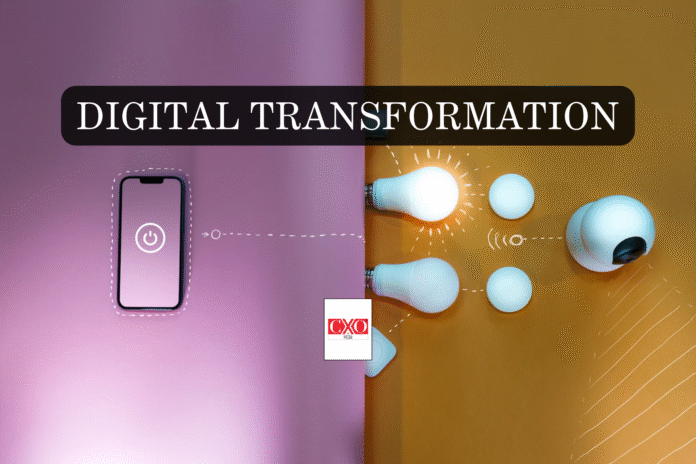In the contemporary, fiercely competitive business arena, data has evolved beyond its conventional role as an operational asset to become a fundamental cornerstone that shapes the strategic paradigms of modern enterprises. Unilever Pakistan exemplifies this shift through its effective harnessing of data to drive substantial transformations across a range of business dimensions. The company’s approach provides a powerful narrative on the transformative potential of data, offering critical insights and lessons for other businesses seeking a competitive edge. By delving into Unilever’s innovative practices, we can uncover how they use data not only to enhance decision-making and operational efficiency but also to foresee market trends, optimize supply chain management, and respond more adeptly to consumer demands, thereby securing a stronger position in the marketplace.
Utilizing Data for Strategic Decisions
Raza, the Head of IT at Unilever Pakistan, highlights the critical importance of data in enhancing strategic decision-making processes within the company. He emphasizes, “Data is the fuel which drives all agents here at Unilever,” showcasing the organization’s strong commitment to integrating data-driven insights into every facet of its operations. This dedication is clearly reflected in their comprehensive management of vast arrays of consumer and operational data, which directly influence key business areas such as product development and marketing strategies.
A particularly significant example of this data-centric approach is evident in Unilever’s overhaul of its sales force automation and enterprise resource planning (ERP) systems. Raza recounts a pivotal project in his career that involved the automation of sales processes across an extensive network of 300,000 outlets. Initially, this initiative faced substantial resistance, primarily due to the low levels of technology penetration and digital literacy among the field staff. Despite these challenges, the project succeeded in significantly streamlining operational workflows and, more importantly, in generating a substantial volume of valuable data. Over a period of five years, this data accumulation became instrumental for the company in strategic planning and trend analysis. Raza reflects on the impact of this data, stating, “That data which we got after… now, we have a good set of data, which we are now modeling in terms of how do we capture the trends, how do we learn from that data.” This iterative process of data collection and analysis has allowed Unilever to not only adapt more swiftly to market dynamics but also to forge ahead in predictive analytics, thus enabling more informed and effective business decisions that are crucial for maintaining a competitive edge in the fast-paced consumer goods industry.
Building a Data-centric Culture
Creating a data-centric culture at Unilever Pakistan transcends mere operational adjustments; it signifies a deep, transformative journey that demands careful planning and precise execution. Raza, the Head of IT at Unilever Pakistan, underscores the critical importance of involving the IT department early in the project lifecycle. He asserts, “For any tech transformation or digital transformation, you have to keep your IT function right at the forefront and involve them early in the project.” This approach ensures that data strategies are not only well-integrated but also that technological transformations are sustainable and aligned with broader business goals.
This strategic emphasis is part of a larger initiative within Unilever, where the establishment of a ‘Digital Council’—consisting of key management committee members from various functions—plays a pivotal role. This council is instrumental in shaping the digital priorities of the company, ensuring they are in sync with the strategic objectives set by global leadership. The council’s decisions reflect a comprehensive governance structure that extends beyond mere technology implementation to fostering a workplace where every employee is equipped with the necessary skills to meet the digital demands of their roles. Through ongoing education and training programs, Unilever Pakistan empowers its workforce, enhancing their digital literacy and capabilities, which are essential for navigating today’s data-driven business environment.
Leveraging Data for Growth and Sustainability
At Unilever Pakistan, the strategic use of data is integral not only to operational efficiency and market competitiveness but also to the company’s growth and sustainability objectives. Raza shares, “We are trying to have a sustainable platform, which is driven by data and technology,” highlighting the role of digitalization in achieving significant optimizations and cost savings. The integration of AI and other advanced technologies into their operations exemplifies Unilever’s forward-thinking approach, which not only responds to immediate business needs but also anticipates future trends and challenges.
Sustainability is deeply integrated into Unilever’s data strategy. Efforts such as transitioning servers to the cloud reduce the company’s mechanical footprint, demonstrating a commitment to environmental stewardship. Data-driven decision-making supports resource-efficient processes, minimizing waste and optimizing resource use across the company’s supply chain. These initiatives reflect a dual focus on enhancing business performance while also prioritizing ecological sustainability. By embedding these principles into its core operations, Unilever Pakistan not only adheres to global sustainability standards but also sets a benchmark for the industry, showing how data and technology can be leveraged to foster a sustainable future.





